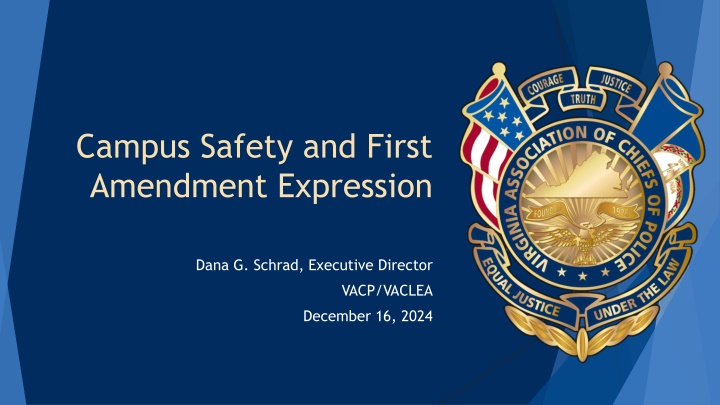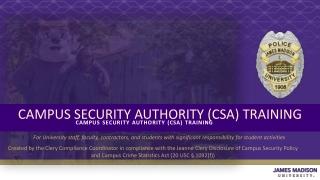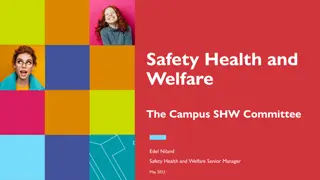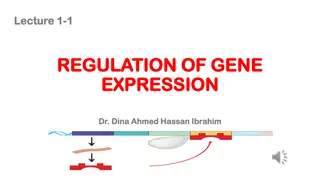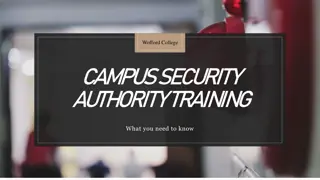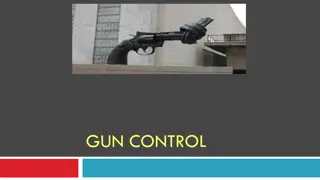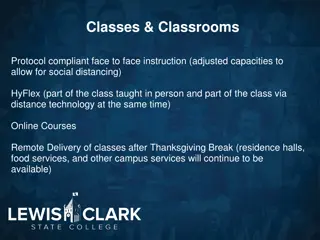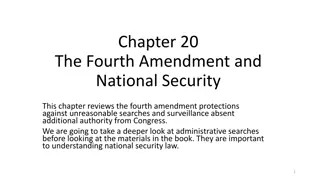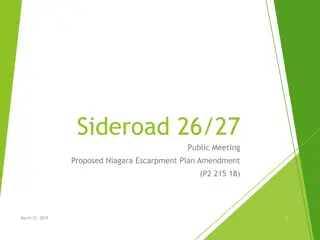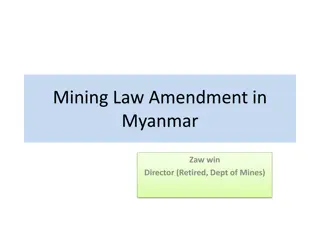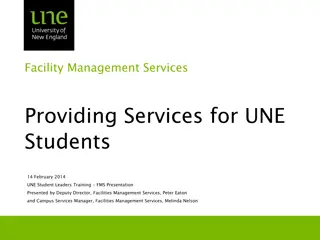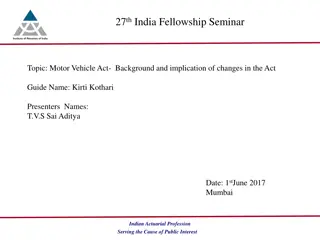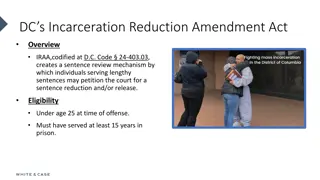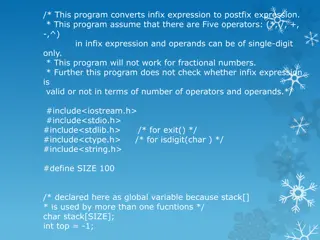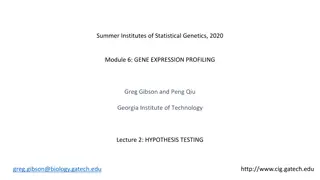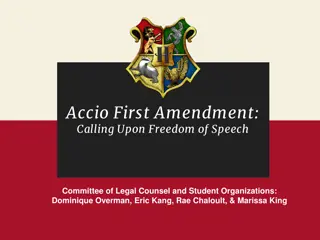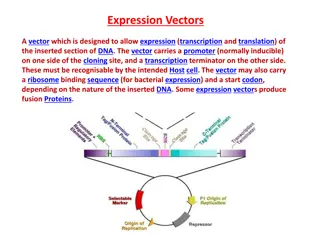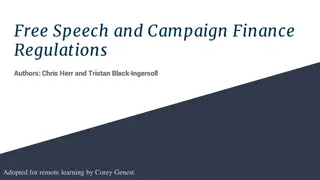Campus Safety & First Amendment Expression Overview
Explore the essential aspects of campus safety and the protection of First Amendment rights on college campuses. Learn about the partnerships between educational institutions and law enforcement agencies, policies on constitutionally protected speech, and the balance between free speech rights and public safety in the context of campus environments.
Download Presentation

Please find below an Image/Link to download the presentation.
The content on the website is provided AS IS for your information and personal use only. It may not be sold, licensed, or shared on other websites without obtaining consent from the author.If you encounter any issues during the download, it is possible that the publisher has removed the file from their server.
You are allowed to download the files provided on this website for personal or commercial use, subject to the condition that they are used lawfully. All files are the property of their respective owners.
The content on the website is provided AS IS for your information and personal use only. It may not be sold, licensed, or shared on other websites without obtaining consent from the author.
E N D
Presentation Transcript
Campus Safety and First Amendment Expression Dana G. Schrad, Executive Director VACP/VACLEA December 16, 2024
Town/Gown Relationships Public IHE with a police department in locality with a police department work together in critical response situations under a cooperative agreement or more formal mutual aid agreement. Many public colleges and universities have multiple campuses in different jurisdictions they have multiple agreements with local police departments or sheriff s offices.
Town Gown Relationships Colleges and universities that do not have police departments usually have campus safety departments or contracted security services. Public and private institutions without police departments rely on local and state law enforcement for law enforcement services. 23.1-815 requires mutual aid agreements between IHE s and the locality to extend campus police powers beyond the campus property. This is often used when Greek houses or student housing are not located on the campus property.
23.1-401.1. Constitutionally protected speech on college campuses No public institution of higher education shall abridge the constitutional freedom of any individual to speak on campus Every public institution shall establish and include in its student handbook, on its website, and in its student orientation programs, policies regarding speech that is constitutionally protected and the process to report incidents of disruption. Annual compliance reports due to the General Assembly by December 1 that include copies of any First Amendment complaints filed against the public institution of higher education.
Law Enforcement Free Speech Policies Goal is to strike a balance between free speech rights and public safety Local and campus law enforcement agencies have policies that address the role of police in protecting free speech and protecting the public. The Police Department does not profile, target, or discriminate against any individual for exercising one s First Amendment rights. The Department is committed to treating all who peacefully gather to express themselves with dignity, fairness, and respect, while protecting their rights and providing equal protection under the law. All employees are expected to fully comply with the guidelines and timelines set forth in this general order. Failure to comply will result in appropriate corrective action. Responsibility rests with the (designated command staff) to ensure that any violations of policy by officers are investigated and appropriate training, counseling and/or disciplinary action is initiated.
Law Enforcement Free Speech Policies Individuals have a First Amendment right to peaceably assemble in public places. While prior police approval is not a requirement, it is recommended that law enforcement be informed in advance to ensure that adequate services are in place to protect the assembly and the public. Officers may not disperse a demonstration or crowd event before demonstrators have acted illegally or before the demonstrators pose a clear and present danger of imminent violence. The mere failure to obtain a permit, such as a parade permit or sound permit, is not a sufficient basis to declare an unlawful assembly. There must be criminal activity or a clear and present danger of imminent violence. Assemblies that become unlawful are asked to disperse; the use of approved and effective crowd management techniques may be used only if the assembly fails to disperse and continues to present a threat to public safety. Campus police policies usually state that the request for additional local and state police services are made by the campus chief of police.
Guidance from Secretary of Education August 2024 letter to Virginia IHEs: Institutions should update their codes of conduct in five key areas: (a) disruptions of school functions; (b) violations of federal, state, and local laws and ordinances, (c) unlawful masking; (d) erection of encampments/tents; and (e) facility usage by affiliated and non-affiliated persons/groups. On July 31st, the Attorney General sent a memo to your university counsel with proposed language that the Governor has asked each institution to adopt. Several IHE s have amended their codes of conduct to address these recommendations.
Time Place and Manner As previously presented, Government has no power to restrict expression because of its message, its ideas, its subject matter, or its content but can establish reasonable, content-neutral time, place, and manner rules so long as they leave open ample alternative channels and don t completely foreclose a type of speech. Permits often are used by localities to ensure that parades and demonstrations are orderly and do not interfere with public ingress and egress or pose any public safety concerns. Permits also ensure that adequate police services are available if needed. With these issues in mind City Council has indicated that it will adhere to a strict Time, Place and Manner approach to permits for parades. Parades will be limited to one parade a day. For parades on Saturday the time for such parades will be limited to the morning hours to be concluded no later than Noon. For parades on Sunday parades will be limited to times that will not conflict with church traffic, typically in the afternoon, to conclude by 5:00 p.m.
Campus Parade/Demonstration Permits Some IHEs have used permits to address planned demonstrations on college campuses. The VMI Superintendent issued this statement in 2023: VMI may reasonably regulate the time, place, and manner of expression in a viewpoint-neutral manner to ensure the safety and security of the VMI community. In addition, VMI reserves the right to freely respond on its behalf and to affirmatively communicate its values and principles. In keeping with its mission and values as a senior military college, VMI recognizes the Superintendent s authority to uphold the good order and discipline of the Corps of Cadets while facilitating the exercise of free speech that is essential to all institutions of higher learning.
Best Practices and Policy Guidance The International Association of Chiefs of Police (IACP) has policies regarding free speech and how law enforcement should respond to public demonstrations: Government restrictions: The government can impose reasonable restrictions on free speech and assembly, but these restrictions should be limited to what's necessary to maintain public safety. Law enforcement response: When responding to public demonstrations, law enforcement should focus on protecting the rights of free speech and assembly. Law enforcement should also be unbiased, listen actively, and respond appropriately. The purpose of this policy is to establish guidelines for managing crowds, protecting individual rights, and preserving the peace during demonstrations and civil disturbances. It is the policy of this agency to protect individual rights related to assembly and free speech; effectively manage crowds to prevent loss of life, injury, or property damage; and minimize disruption to persons who are not involved.
Legislative Recommendation Amend 23.1-815. to replicate the requirement in 15.2-1701 for local police departments. All municipal agencies are required by Virginia law to have a chief of police; this proposed amendment would bring that requirement to all campus police forces as well. Add language: Such forces shall include a chief of police, and such officers and other personnel as appropriate. Campus law enforcement officers are certified law enforcement officers who are subject to the decertification law. ( 15.2-1708) The Code requires the chief of police to notify DCJS when an officer should be decertified. National or state agency accreditation standards are written with an expectation that all police departments have a chief of police serving as the chief executive officer. VLEPSC Standard 15.2-1707 references chief executive officer which is interpreted as chief of police or sheriff. Campus police departments are eligible for state accreditation under the VLEPSC standards.
Contact Information Dana G. Schrad, Executive Director Virginia Association of Chiefs of Police Virginia Association of Campus Law Enforcement Administrators dana@vachiefs.org Mobile: 804-338-9512
